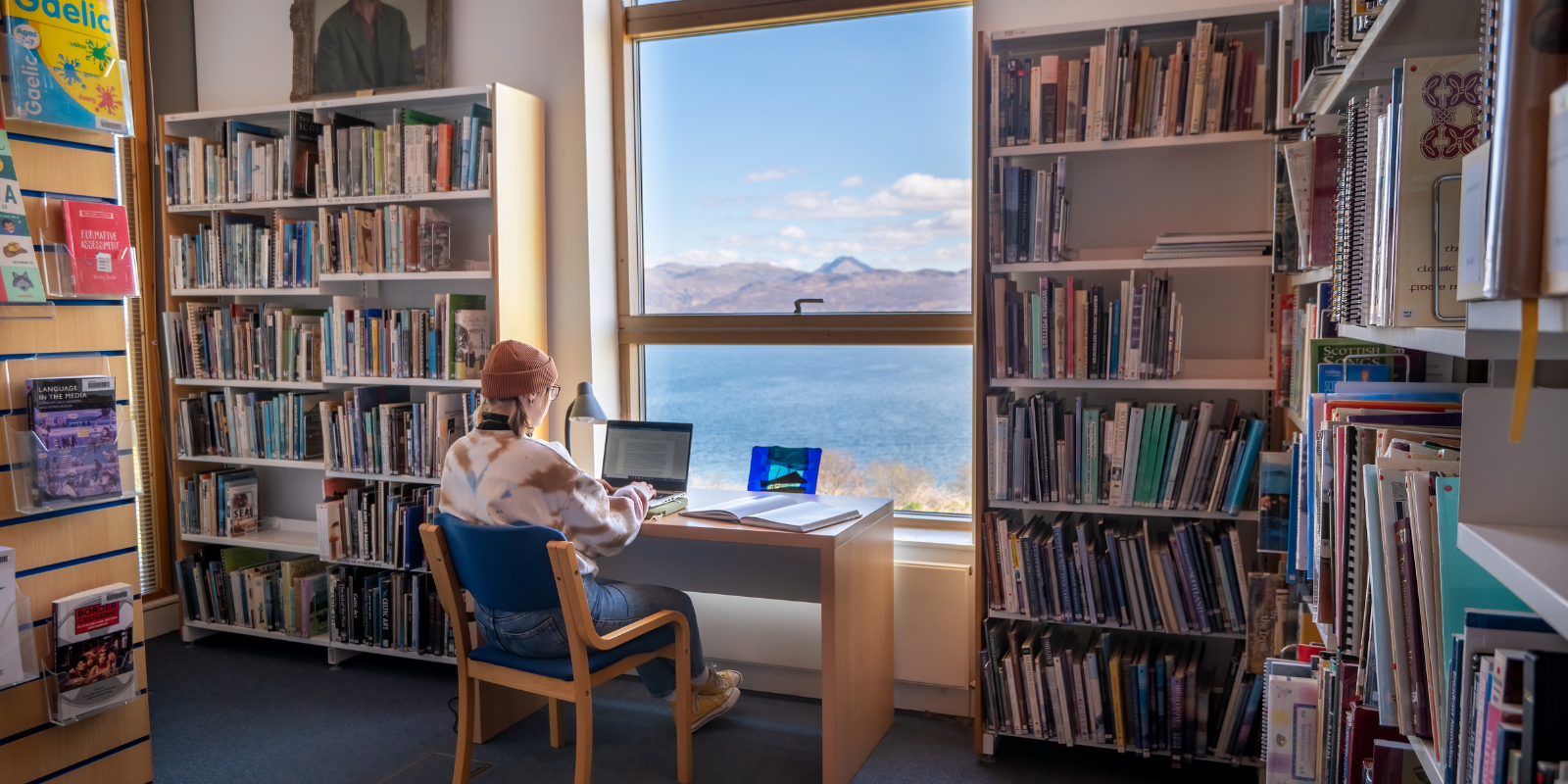
Sabhal Mòr Ostaig
The only centre of Higher and Further Education in the world to provide its learning programmes entirely in Gaelic, Sabhal Mòr Ostaig was awarded a Prize in 2002.
An Alumni Story: Archie Maclean
Sabhal Mòr Ostaig is the only centre of Higher and Further Education in the world to provide its learning programmes entirely in Gaelic. Founded on the Isle of Skye in 1973, it now inspires thousands of learners, online and on campus, and champions Gaelic around the world. In 2002, it won a Queen Elizabeth Prize for Education. Here, Depute Director of Studies Archie Maclean explains the Prize’s impact.
When we first applied, the college was less than 30 years old, and I don’t think anyone expected to win. We knew we were up against large, established institutions. But we’re very proud of what we do, and the feeling was one of ‘well, let’s try this and see where it goes’.
I think the process of applying itself was actually an important milestone in the College’s development. It was us recognising the value of what we were doing.


When we won, there was a huge sense of pride. You struggle away from day to day at the usual things, and it can be easy to lose sight of the big picture. So to see all that work coming together and being celebrated was really important. It was a big time for the College, and it gave everyone a lift.
It showed that we were on the right journey, in terms of language promotion and development, and it gave us a springboard to a whole range of related activities.
It featured heavily in our marketing at the time, and it gave us traction with funders, stakeholders and politically. It helped a lot, I would say.

At that point, we were at the very start of becoming an academic partner within the University of the Highlands and Islands network, and we wanted to be seen as credible. Winning the Prize helped to do that. It also helped us to gain support from the Scottish and UK governments.
Educationally, it gave us validation – and it gave us self-belief. It confirmed that what we were doing was innovative and of academic significance. For anyone involved in education, you want to know you’re having an impact, that you’re making a difference in the lives of the people who come through your doors.
Since then, the College has been involved in a whole range of projects. One in particular that was being developed at the time was Tobar an Dualchais, our oral history digitisation project. It went on to receive funding from around 20 organisations who came together to get it going, including local authorities, stakeholders within the Gaelic world and other universities and colleges.

Another example would be Faclair na Gàidhlig, our Gaelic dictionary project. And there have been many others where the Prize helped to shape the funding applications.
Since 2002, we’ve gone from being a very small institution focused entirely on academic provision to developing a whole range of Gaelic projects and having much greater national reach. Today, we have around 500 learners online, up to 80 students on campus and our short courses programme, where we might get 1,000 people attending over the course of a year.
We now have a Centre for Creative and Cultural Industries and we’re in the process of developing Kilbeg, a Gaelic village around the college. It’s great to look back now and see how far we’ve come, and the Prize helped with all of it.
